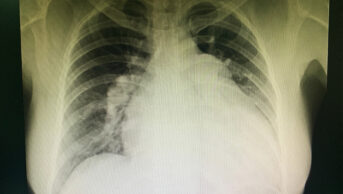
Shutterstock.com
Pharmacist-led interventions in GP practices can successfully reduce risk factors for cardiovascular events, a systematic review and meta-analysis published in the British Journal of Clinical Pharmacology (27 November 2019) has suggested[1]
.
The study looked at 21 randomised controlled trials conducted in seven countries involving 8,933 patients at high risk of a primary cardiovascular event, including those with diabetes, hypertension, and dyslipidaemia. Interventions lasted between 3 and 36 months, with the most common types being medication review and medicines management.
Pharmacist-led interventions were associated with a significant reduction in systolic blood pressure, at a mean of 9.33mmHg (95% confidence interval [CI] –13.36 to –5.30) and an average decline in HbA1c of 0.76% (95% CI –1.15 to –0.37), compared with controls. In patients with dyslipidaemia, low-density lipoprotein cholesterol was reduced by an average of 15.19mg/dL (95% CI –24.05 to –6.33).
Some studies included in the review also reported that pharmacist interventions improved medicines adherence and were cost effective.
The authors said the findings supported a greater involvement in GP management of hypertension, diabetes and dyslipidaemia.
“Future work is needed to address the effectiveness of pharmacists’ interventions on non-medical risk factors of cardiovascular disease, such as obesity, smoking and alcohol consumption,” the team concluded.
References
[1] Alshehri A, Jalal Z, Cheema E et al. Br J Clin Pharmacol 2019. doi: 10.1111/bcp.14164


